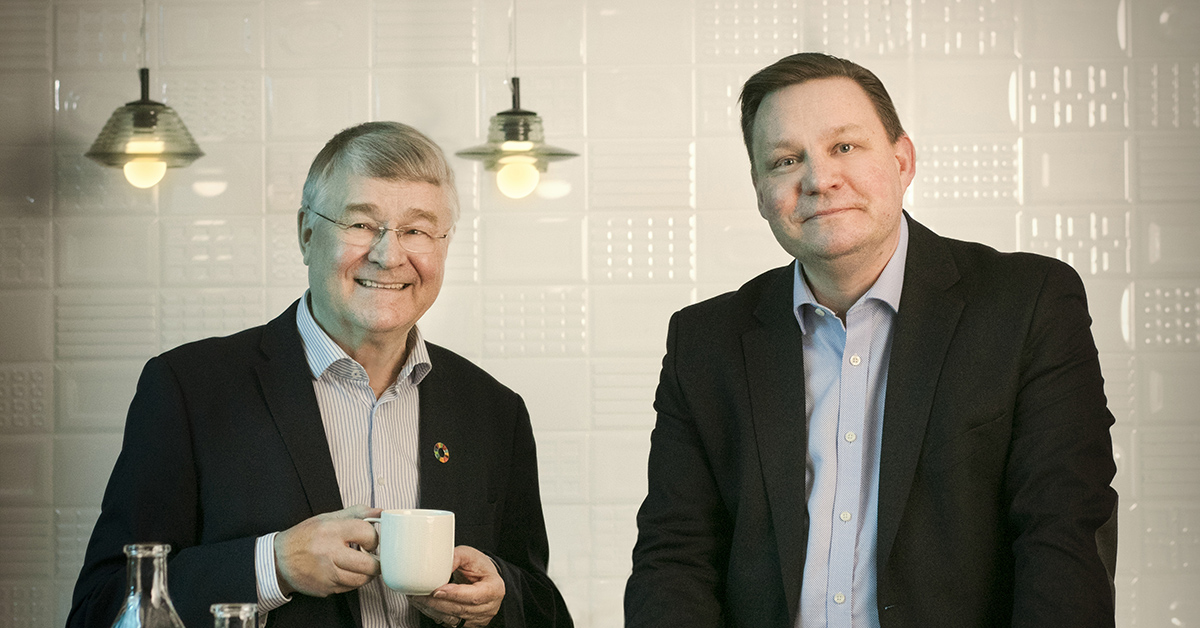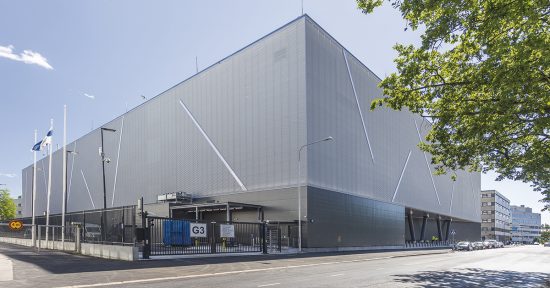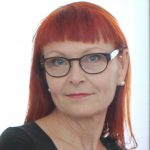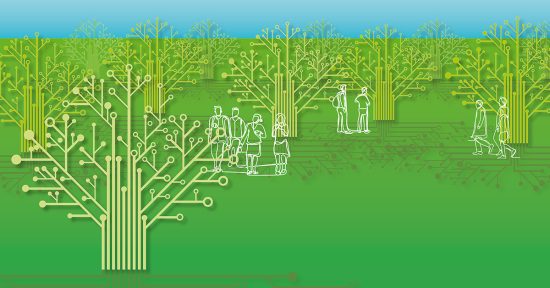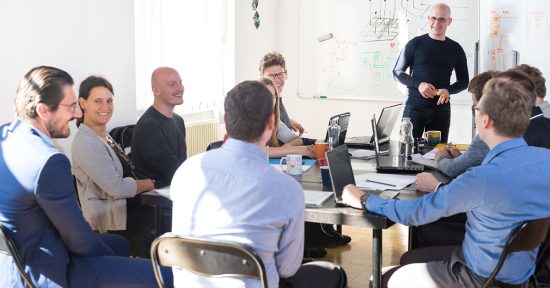Markku Markkula held the chair’s gavel on TIEKE’s Board from 2000 to 2011. The current chair, Ilkka Lakaniemi, took office in December 2017. Their views on the current challenges and future opportunities of the Finnish information society are based on extensive experience in the business world, politics, and the scientific community.
Long-standing networker
When asked what makes the 40-year-old TIEKE so impactful, both chairs mention two qualities: perseverance and networks.
“TIEKE is an impartial builder of bridges, whose work continues with determination through election terms and economic cycles. By bringing the users and developers of digital solutions around the same table, TIEKE creates interaction that results in common goals and operating models”, Lakaniemi explains while also sending his thanks to the office team:
“TIEKE’s office represents a unique combination of in-depth expertise and prompt undertaking of new tasks. A small, dynamic team coordinates, organises, combines, brainstorms, and produces the building blocks of information society in a way that will have a far-reaching impact well into the future.”
“TIEKE’s work continues with determination through economic and electoral cycles.”
Ilkka Lakaniemi
Chair of the Board, TIEKE
Learning platform and think tank
“TIEKE is a community where the Board, office, events with their participants, and services with their customers form a multidimensional platform for learning together. We were already a platform when others were just talking about networking”, Markkula describes.
For him, the culture of learning together stems from TIEKE’s Board, which represents various sectors of society. Over the decades, its members have included pioneers from, for example, media, industry, commerce, and public administration organisations.
“TIEKE’s Board of Directors is a think tank where science meets practice and innovation meets everyday life”, Markkula says.
Lakaniemi is also of the opinion that TIEKE’s key driving force is the Board’s multidisciplinary nature.
“The backgrounds of the newest members are with the City of Oulu and the Suomen Yrittäjät organisation for entrepreneurs, for example. Through them, we will strengthen the role of Northern Finland in our work as well as our outlook of the digital development needs of SMEs.”
“TIEKE’s Board of Directors is a think tank where science meets practice and innovation meets everyday life.”
Visible results
The chairmen’s conversation shifts from operating culture to TIEKE’s concrete achievements. Markkula mentions standardisation as one of the most impressive.
“Since the 1980s, TIEKE’s working groups have made huge efforts to unify digital messaging in the supply chain and to open the boundaries between systems. Standardisation has taken place especially in the areas of financial administration, industrial processes, and logistics. At TIEKE, it has always been understood that the global market and success require compatibility and standards.”
Lakaniemi cites two examples from the 2000s:
“Even though the Information Society Academy was established just a few years ago, the discussions that have taken place there have already fuelled Finnish information society development in a positive way. A very recent effort has also been the expansion of the e-invoicing address book from Finland to Sweden.”
Markkula jumps into a time machine and travels to the early 1990s. “Did anyone guess then how big a hit TIEKE’s computer driver’s licences would be? Hundreds of thousands of Finns have studied and demonstrated their IT skills according to the criteria of the driver’s licence family, and the Finnish innovation has also been successful around the world.”
Towards the future
What about the future of TIEKE? In what direction must activities be developed in the 2020s and beyond so that we can use digitalisation to fuel a successful information society, that strengthens the well-being of people and the environment?
“TIEKE has a long tradition of influencing the international community, and this dimension needs to be reinforced. Now we have to take vigorous leaps”, Markkula says.
Lakaniemi agrees. ”We have piloted many digital skills practices that can be taken elsewhere. We can also change international information society thinking in a more holistic direction and break down the walls between silos.”
“A new normal will be created after Covid, an integral part of which will be continuous researcher-developer-applier unions in which one can participate from anywhere. International networks provide a wealth of knowledge, and working together globally will establish itself as the way to operate”, Markkula predicts.
“We can change international information society thinking and break down the walls between silos.”
Ilkka Lakaniemi
Goodbye to national strategy
According to Lakaniemi, the internationalisation trend in Europe is shifting the focus to business networks and cities.
“The future lies in the cooperation of European cities, which means that the time for a national information society strategy is over for good. TIEKE’s task is to open the way for Finnish operators to international developer consortia, such as the Smart Cities network.”
“TIEKE opens the way for Finnish operators to international developer consortia.”
Ilkka Lakaniemi
Lakaniemi, who began his second three-year term as chairman of TIEKE’s Board in January 2021, emphasises that the small country of Finland should not stand on the sidelines from the data economy mainstream either.
“The drivers of the European data economy are Germany and France. For Finland to succeed in international competition in the future, we must participate in the definition of data economy practices now, as a partner to these economic powers.”
Collaborate with TIEKE
TIEKE collaborates happily with international parties on projects especially in the following fields:
- Digital skills development
- Identification of competence
- Open & usable public data
- MyData
- Digital rights
- Green ICT
- Intraoperability
- Real-time economy
- Digital logistics & traffic
- Data economy & AI
- Major digital projects

